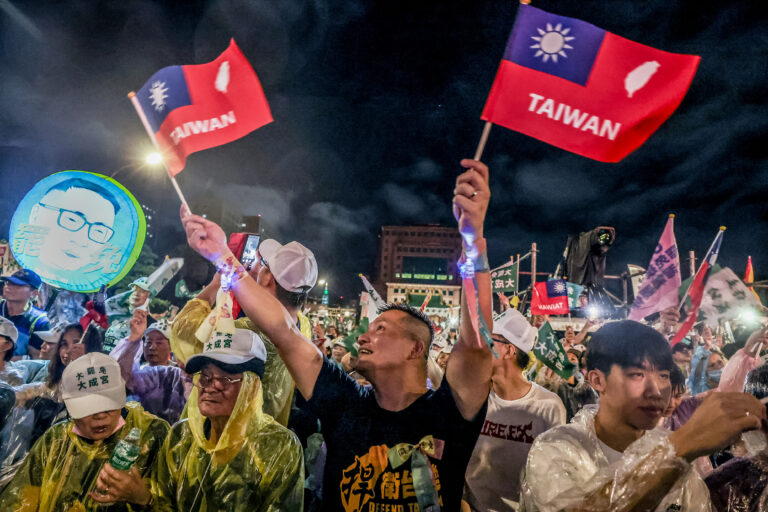Voters in cities and counties across Taiwan will head to the polls Saturday in what local media are calling the “Great Recall.”
At stake are the jobs of nearly two dozen legislators and several local leaders—along with the island’s political balance of power, which could significantly impact Taiwan’s relationship with China.
Proponents have framed the recall as a means of breaking the legislative gridlock. Critics have slammed it as an abuse of the democratic process.
Why It Matters
The ruling Democratic Progressive Party (DPP) retained the presidency with Lai Ching-te’s victory in January 2024, but lost its majority in Taiwan’s 113-seat legislature. The opposition Kuomintang (KMT)—which favors closer engagement with China—and its junior partner, the Taiwan People’s Party (TPP), have since used their majority to push through a series of parliamentary reforms and enact budget freezes, including cuts to major defense projects.
Critics accuse the opposition of obstructing government policy and weakening Taiwan’s hand against China, which claims the self-ruled island as its territory and has not ruled out unification by force. Beijing has ramped up military pressure on Taiwan in recent years and this has only escalated since the inauguration of Lai, whom Beijing considers a “separatist.”
Newsweek reached out to the Chinese foreign ministry by email with a request for comment.
I-Hwa Cheng/AFP via Getty Images
What To Know
Saturday’s recall election, spearheaded by DPP officials and affiliated grassroots organizations, targets 22 lawmakers from the KMT, one from the TPP, and two mayors.
A recall succeeds if over 25 percent of eligible voters participate and a majority votes to remove the official. Those recalled cannot run again in the same district for four years.
With the KMT holding a slim legislative majority, just six or seven successful recalls could tip the balance and give the DPP renewed control in the 113-seat Legislative Yuan. The KMT describes the campaign as an abuse of democratic process, while the DPP says it’s a constitutional right for citizens.
China’s Taiwan Affairs Office has denounced the recalls in previous statements, while Taiwan’s Mainland Affairs Council has accused Beijing of trying to influence the outcome.
The vote could reshape Taiwan’s politics and signal how the island will respond to Chinese pressure. If the DPP regains control of the legislature, Beijing may retaliate with a show of force, such as the three large scale military drills it has staged since Lai took office.
What People Are Saying
Tso Chen-dong, a political science professor at National Taiwan University, told Deutsche Welle: “If the mass recall has deepened divisions in Taiwanese society, it would be a great opportunity for the Chinese Communist Party to look for excuses and cracks to push forward with its agenda toward Taiwan.”
Yu Laiming, director of Wuhan University’s Institute of Taiwan Studies, wrote in an op-ed for Chinese state media outlet China Daily: “The aggressive purge of dissenting voices, on the pretext of the recall vote, is a blatant manipulation of public sentiment, trampling on Taiwan’s legislative system. Such actions are not only disgraceful but reprehensible.”
What’s Next
All but five of the recall votes will be held on July 26, 2025. The fate of the other five offices will decided on August 23.

